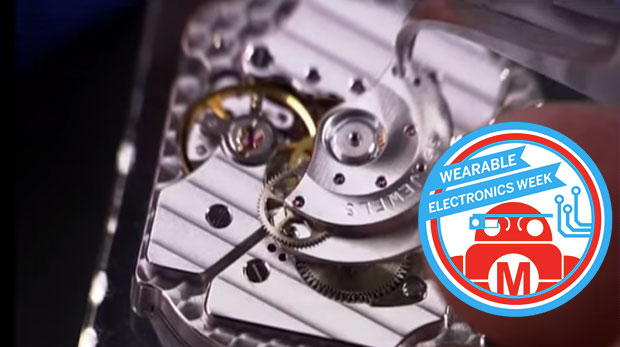
It won’t answer your phone. It won’t tell you if you have a text message, or how many steps you’ve taken today. You can’t sync it to anything except another clock, and it doesn’t get internet. So why does the mechanical wristwatch persist when everyone’s got a timekeeper in their pocket, and Samsung and Pebble and Apple are making powerful, sleek, connected versions?
Documentaries like this one about watchmakers Philippe Dufour and Vianney Halter, by Kat Mansoor, Will Hood, and Adam Lavis, remind you there’s more to the things you wear. Even if you’re not a watch person (I am) you can find inspiration in the craftsmanship and words of Dufour, who says “The value, besides the gold or platinum case, is what we add, and we spend a lot of hours, days, making things nice.”
“When you compare with mass-produced watches, we produce watches with a soul.”
Dufour compares his handcrafted mechanical watches to the quartz ones that took over the market, but it’s an accurate comparison to smartwatches as well. “People are rediscovering the fact of winding a watch. They lost it because of quartz watches ultimately, but to wind it, to listen to the ‘click click click’ of the winding mechanism, people are crazy about that. They realize also, without them, the watch is dying. So you have to feed your watch every day. And you create this relation.”
Though the documentary is from 2007, Dufour’s musings on craftsmanship apply to the present movement as well — and to more than just watchmaking.
“Every time a watchmaker goes into retirement, we’re losing something,” he says. “In all craft, craftsmen, in every profession … we are losing every day, every day more. And one day we will realize, we lost everything.”
Dufour is still making watches, and still featuring in documentaries. See The Road to Basel Episode 2, and in the comments below, share your favorite videos of exceptional craftsmanship.
ADVERTISEMENT





